Every month we are singing a couple of hymns with our evening Bible time. I often either know the history of a hymn or I research it. This month one of our hymns is O Come, O Come, Emmanuel. It is also one I’ve never researched before. I found it’s background interesting and thought I would share.
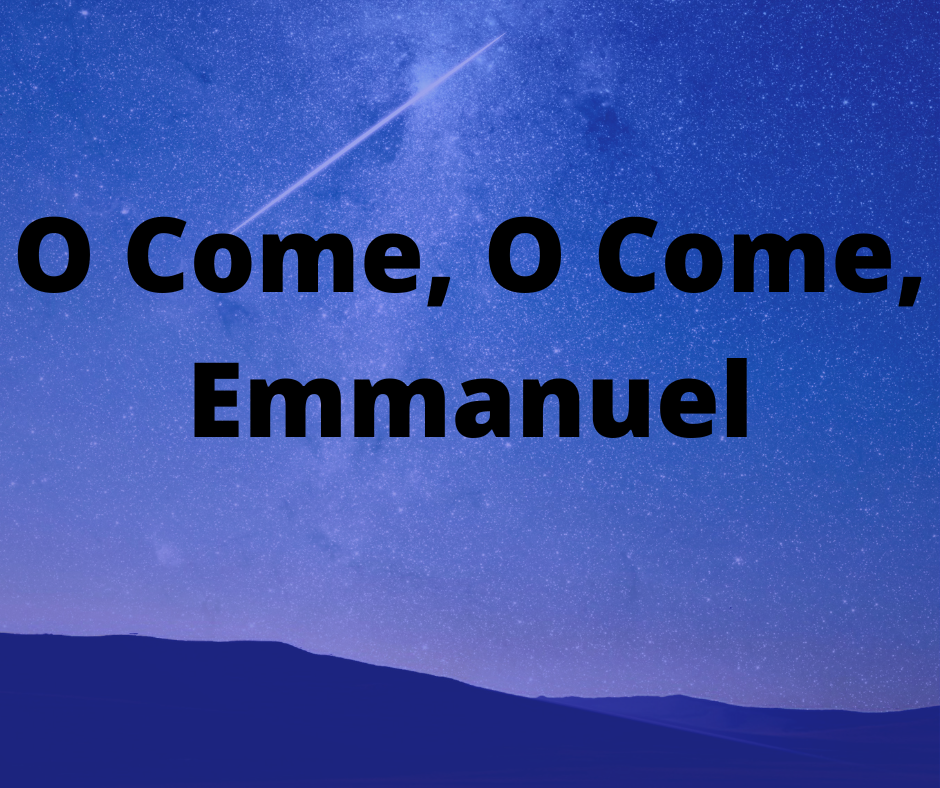
Background
First, the words to O Come, O Come Emmanuel come from a 7-verse, Latin poem written in the 8th Century. It contains a rich background we have missed in modern hymns. This is partially due to most of us not knowing Latin and partially not knowing how it came about.
Originally sung as a chant, they used one verse each day in the week leading up to Christmas. Fast forward nearly a century and the poem was versified and some verses dropped.
In the original Latin the poem creates a reverse acrostic “ero cras” which means “I shall be with you tomorrow”. Also, each verse focuses and expounds on a different name for the Messiah.
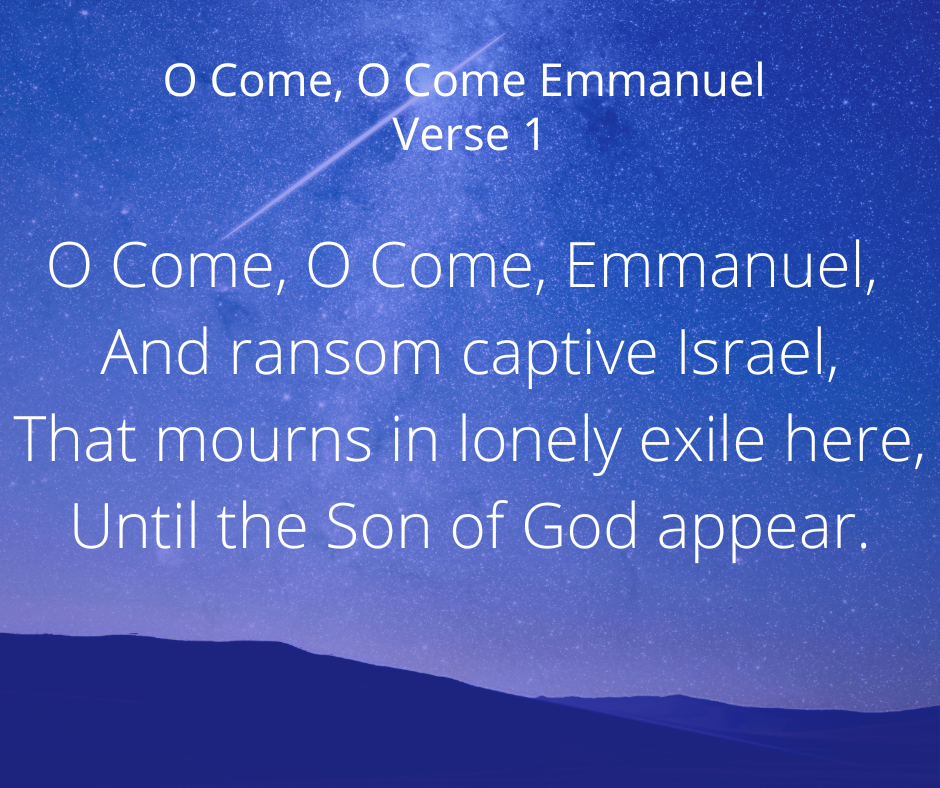
Emmanuel
Verse 1 uses the commonly known name for Jesus, Emmanuel. Emmanuel means “God with us”. We find it in the prophecy from Isaiah.
Therefore, the Lord himself will give you a sign.
Behold, the virgin shall conceive and bear a son,
and shall call his name Immanuel.
Isaiah 7:14
This verse, also quoted in Matthew 1:23, points to it’s fulfillment by Jesus and Mary’s pregnancy.
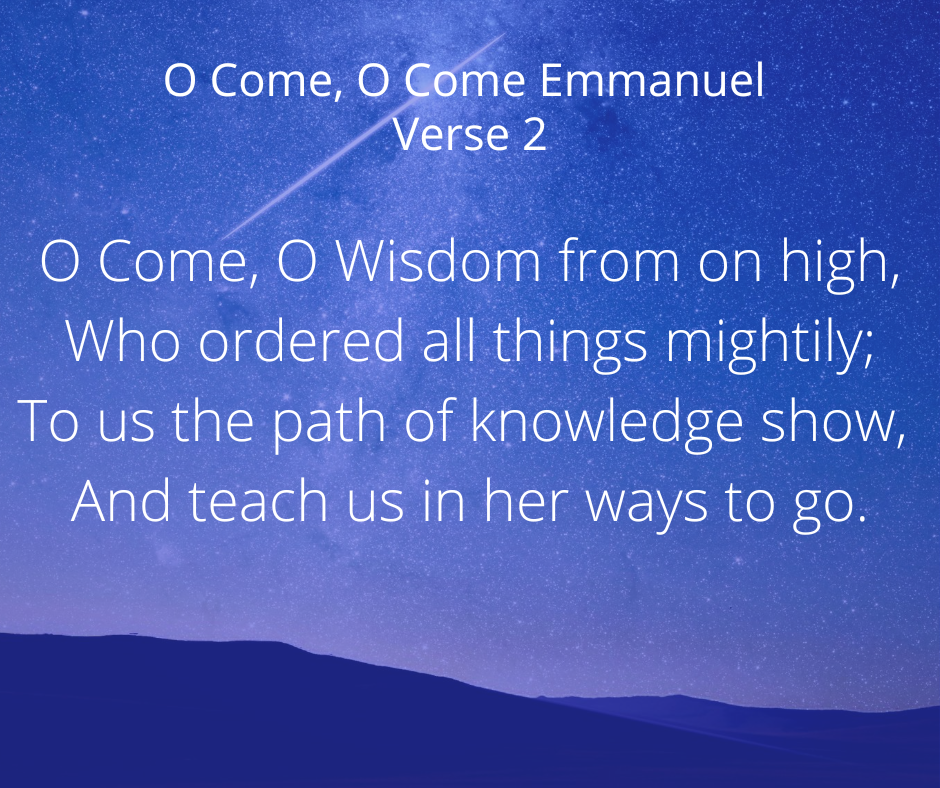
Wisdom
Wisdom. The understanding into the nature of things. It is described often in the Bible having a personality and will. If we look at Proverbs 8 we see several verses. In verse 12 we see the example of personification. “I, wisdom, dwell with prudence…”, but if we look further into the chapter we come to verses 22-23
“The Lord possessed me at the beginning of his work,
the first of his acts of old.
Ages ago I was set up,
at the first, before the beginning of the earth.”
and if you keep reading almost every verse to verse 31 place Wisdom at the beginning before Creation in Genesis 1:1. Please go read Proverbs 8. It has a similar ring to it as John 1 where Jesus is given the name Word and placed at the beginning before Creation.
In the beginning was the Word, and the Word was with God, and the Word was God. He was in the beginning with God. All things were made through him, and without him was not any thing made that was made. John 1:1-3
Colossians 1:16-17 also places Jesus At Creation. “For by him all things were created, in heaven and on earth visible and invisible, whether thrones or dominions or rulers or authorities – all things were created through him and for him. And he is before all things, and in him all things hold together.”
Thus we come to Wisdom as another name for the Messiah.
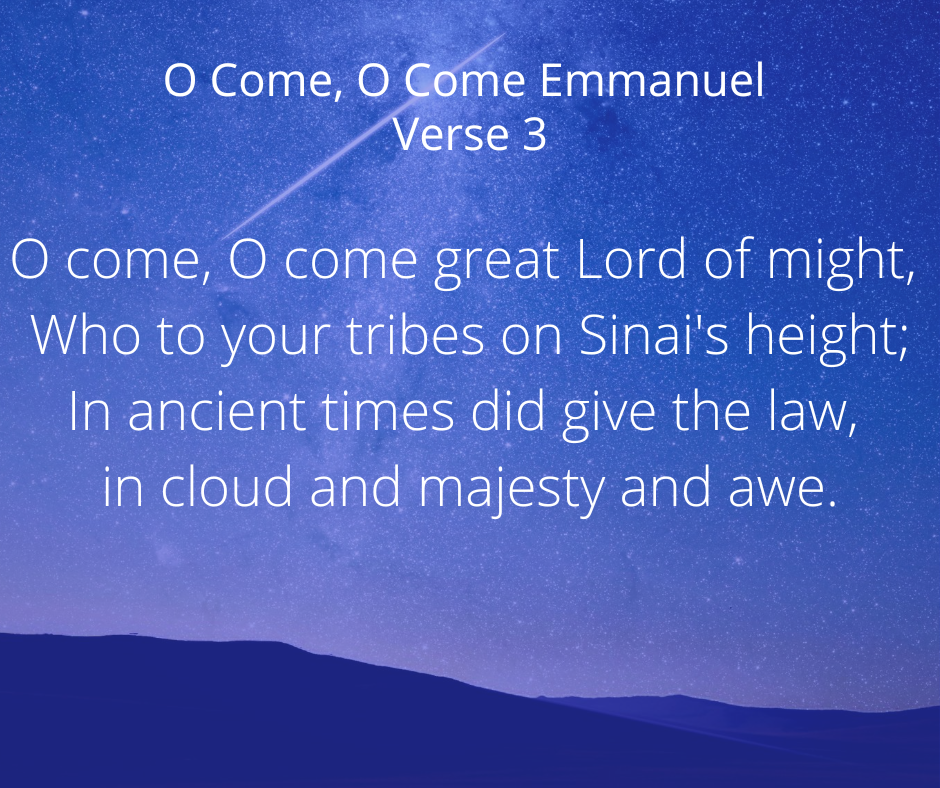
Great Lord of Might
Great Lord of Might. Adonai. Adonai: translated Lord or Master. In this verse our Lord is a “great Lord of Might” who specifically gave the law. In Exodus after the Israelites, “your tribes,” miraculously exited Egypt and came to the Mt. Sinai, “Sinai’s height,” God gave them the Law beginning in Exodus 20 and starting with the Ten Commandments. If we back up to into Exodus 19 starting in verse 16 we see God coming down in fire and wrapping Mt. Sinai in a thick cloud of smoke with thunder, lightening and a loud trumpet blast and causing the mountain to tremble. I think that pretty well covers “in cloud and majesty and awe.”
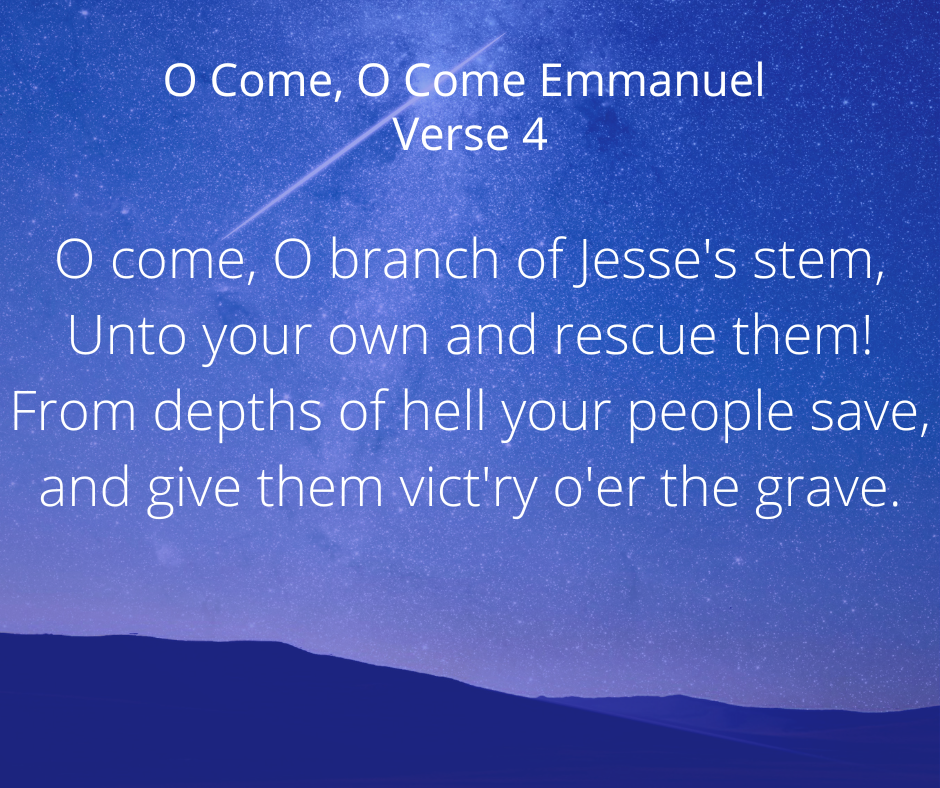
Branch of Jesse’s stem
Isaiah 11:1 gives us a reference to the branch of Jesse.
“There shall come forth a shoot from the stump of Jesse, and a branch from his roots shall bear fruit.”
Jesse, the father of David, who became King David, whom God promised an everlasting kingdom in 2 Samuel 7:16. “And your house and your kingdom shall be made sure forever before me. Your throne shall be established forever.”
So, if Jesse is the root, then David and all his descendants are the connected branches into that root. We see two genealogies from Jesus. The first is in Matthew 1:1-16 and follows the lineage through Joseph. The second in Luke 3:23-38 following the lineage of Mary. Both place Jesus as a descendant of David and Jesse.
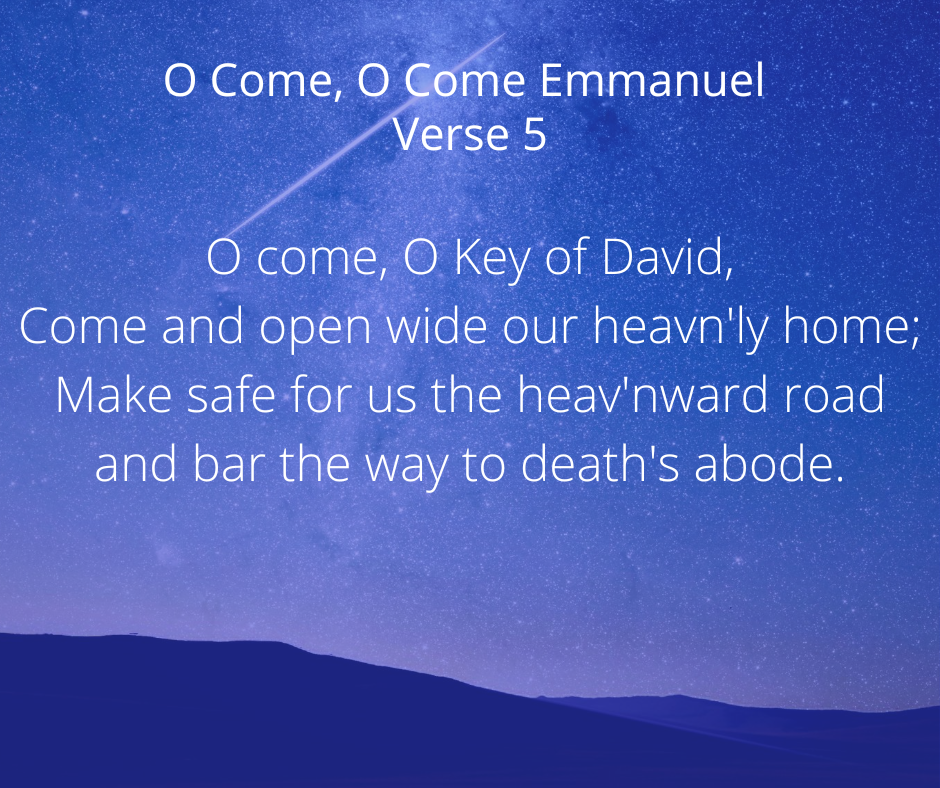
Key of David
Again we look in Isaiah. Isaiah 22:22 tells us
“And I will place on his shoulder the key of the house of David.
He shall open, and none shall shut; and he shall shut, and none shall open.”
Who would hold a key to the house? The owner or master. It makes sense then that Christ as an eternal King would hold the ‘key of the house of David.’ If you back up to verse four we looked at the connection between David and Jesus.
We also see the ‘key of David’ used in Revelation 3:7. In the message to the church at Philadelphia we see almost identical words. “And to the angel of the church in Philadelphia write: ‘The words of the holy one, the true one, who has the key of David, who opens and no one will shut, who shuts and no one opens.'”
Here we see Christ now has the ‘key of David’. He controls to door. He is the open gate or door we read about in Matthew 7:13ff and John 10:1ff.
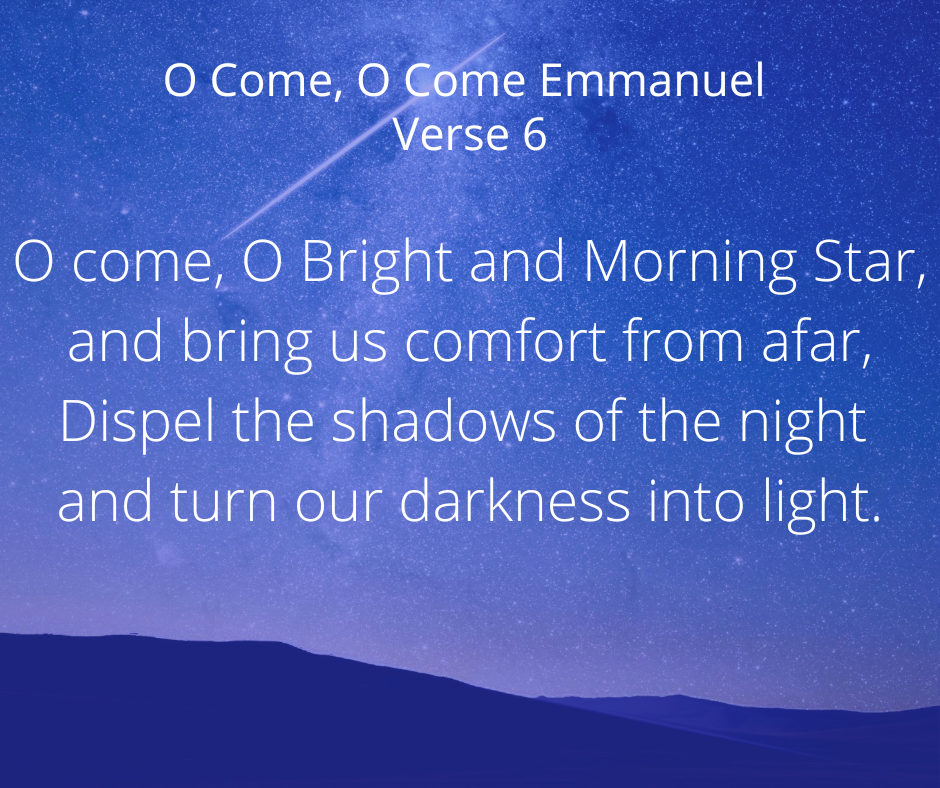
Bright and Morning Star
First in Astronomy, not to be confused with Astrology, the appearance of the morning star (Venus) means daybreak comes.
In Malachi 4:2 we have dawn alluded to. “But for you who fear my name, the sun of righteousness shall rise with healing in its wings.
But in Revelation 22:16 We see Jesus giving that description to John. “I, Jesus, have sent my angel to to testify to you about these things for the churches. I am the root and the descendant of David, the bright morning star.” The appearance of Jesus, our Morning Star, means our eternal day is about to dawn.
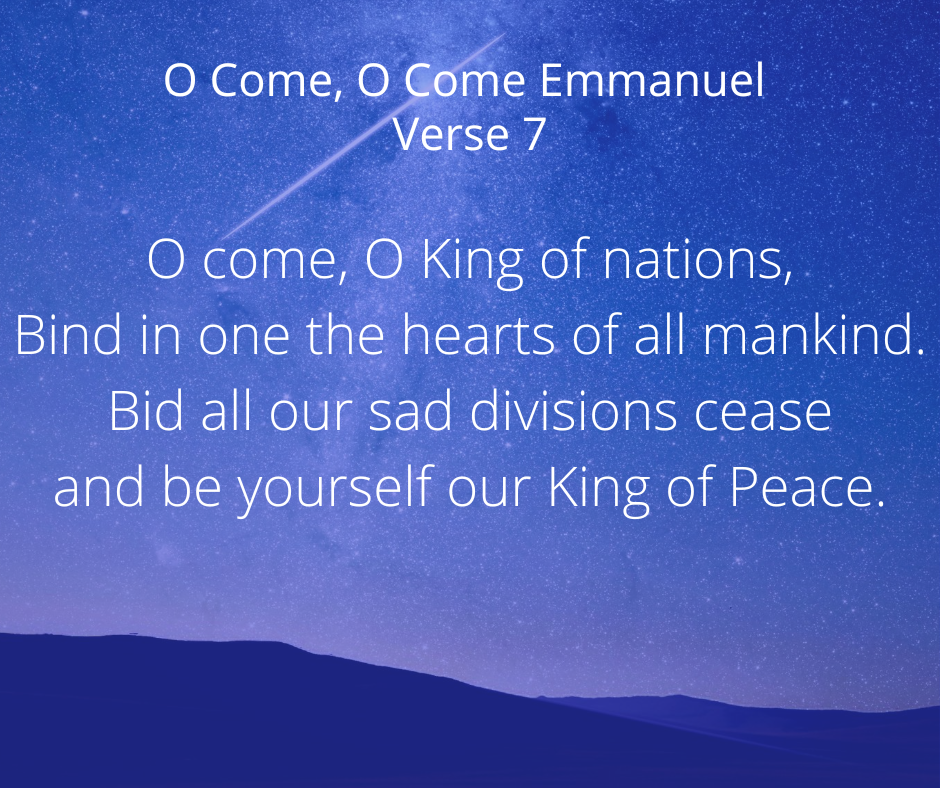
King of Nations
King of Nations is mentioned in Jeremiah 10:7
“Who would not fear you, O King of the nations?
For this is your due;
for among all the wise ones of the nations
and in all their kingdoms
there is none like you.”
Also, in Revelation 15:3b as part of the song sung by “those who conquered the beast” (v2).
“Great and amazing are your deeds,
O Lord God the Almighty!
Just and true are your ways,
O King of the nations!
Jesus bears the name “King of kings and Lord of lords.” In Revelation 19:16 it is written on his robe and his thigh. In Revelation 17:14 we are told he will conquer because he is “Lord of lords and King of kings”
Daniel 2:21a tells us he places kings in their positions.
He changes times and seasons; he removes kings and set up kings;
I hope you have a new appreciation for this Christmas hymn. I used the poem version instead of the versified version found in modern hymnals which use only three or four of the verses.
Which verse is your favorite?
Leave a Reply